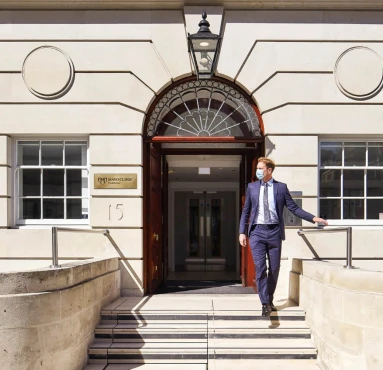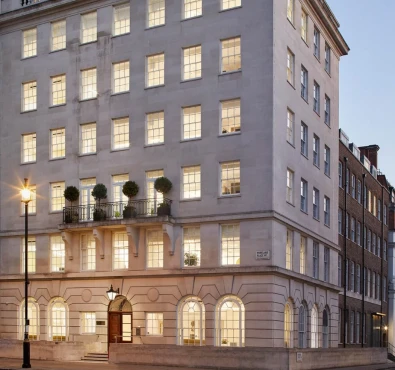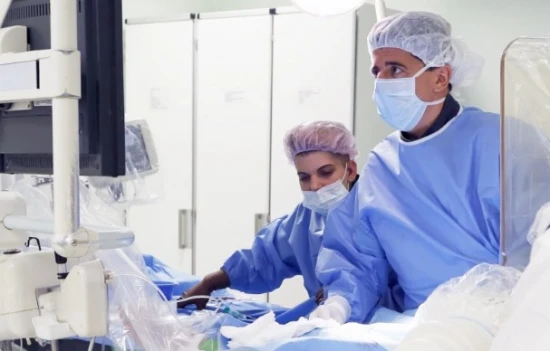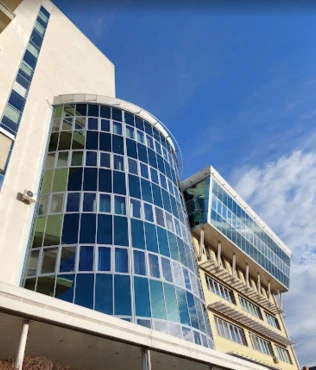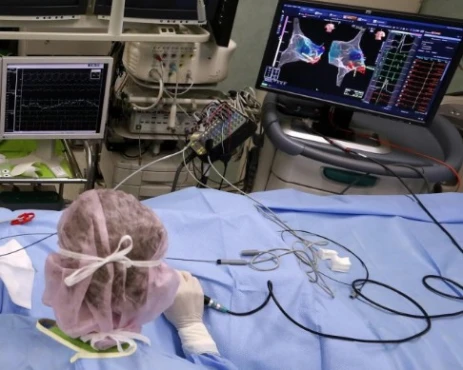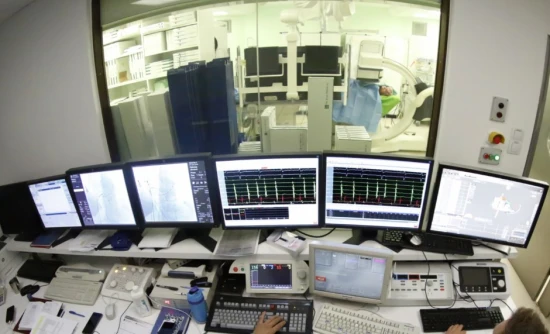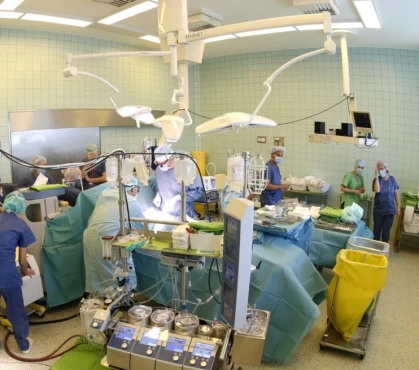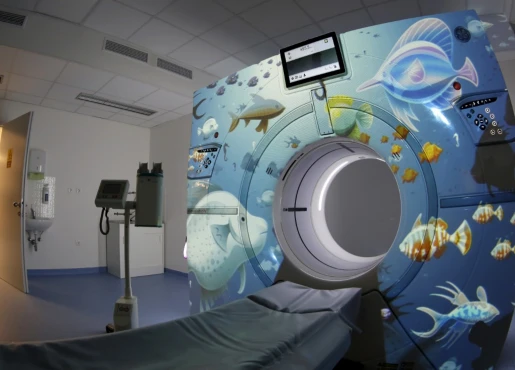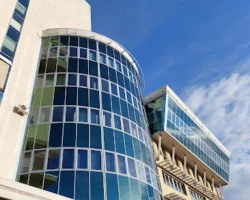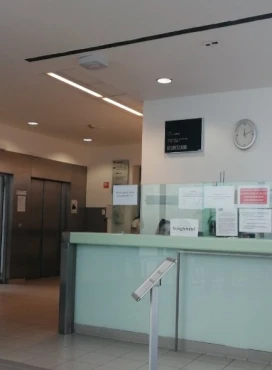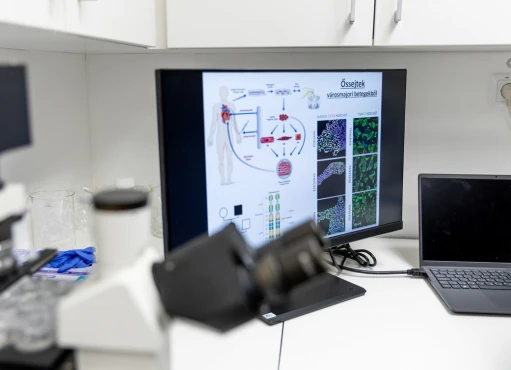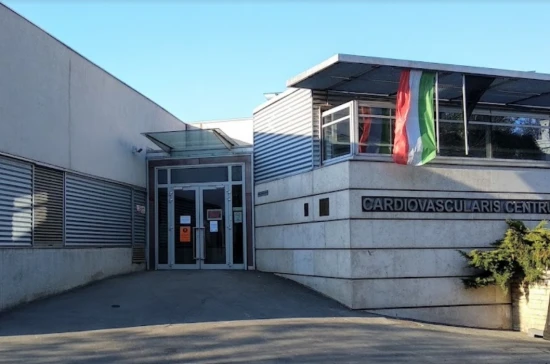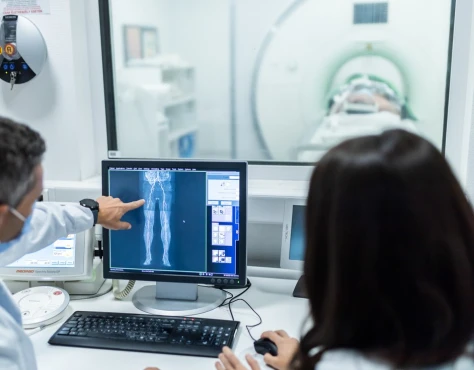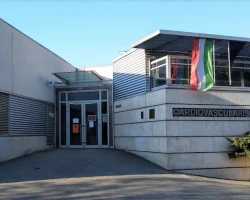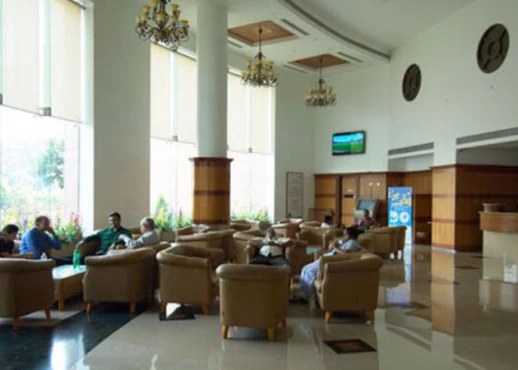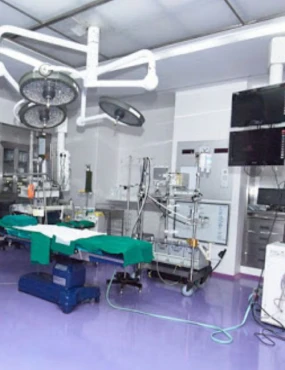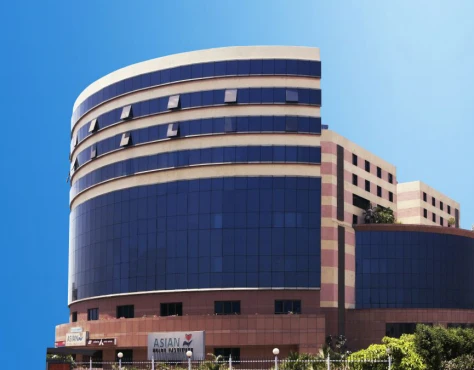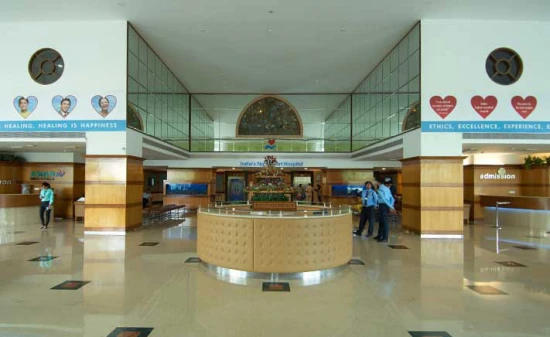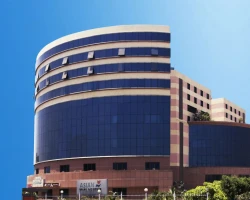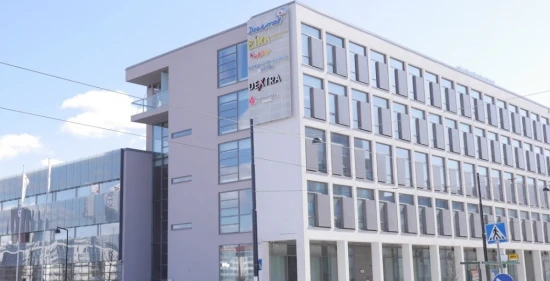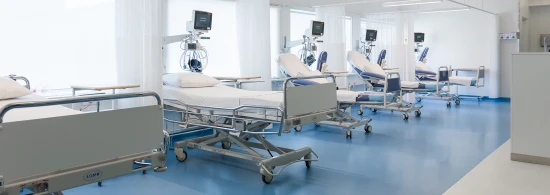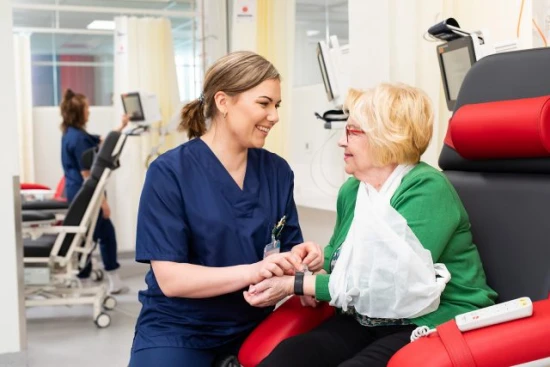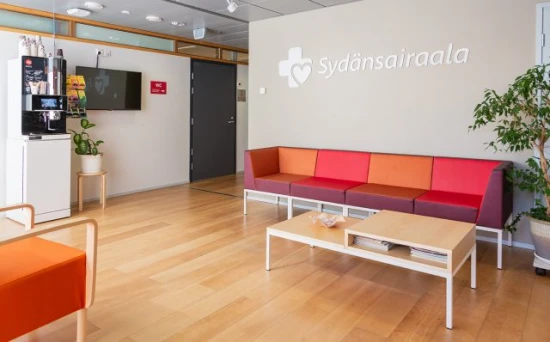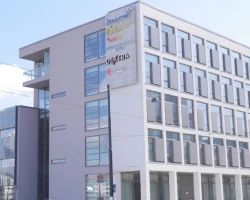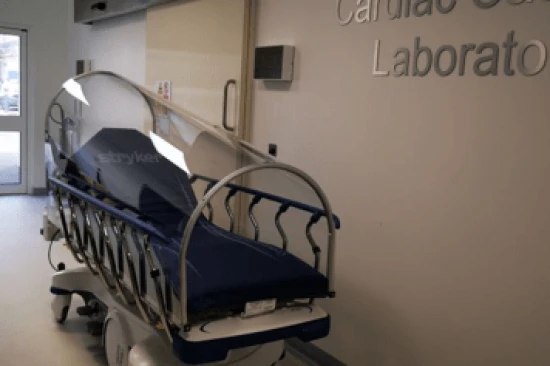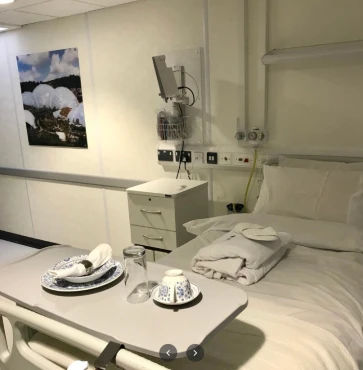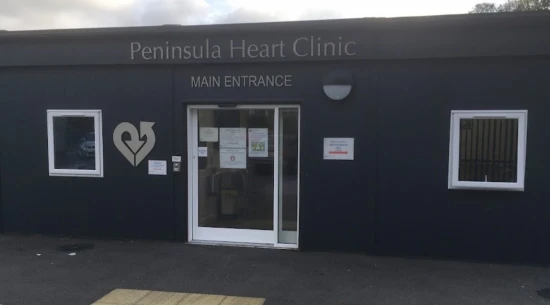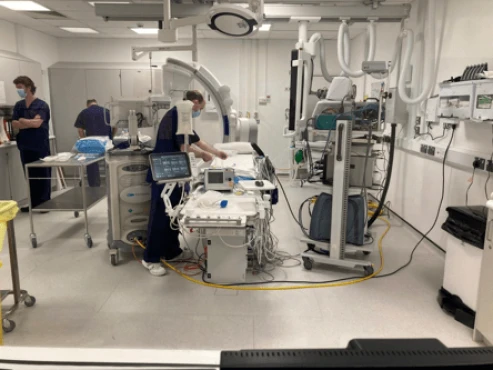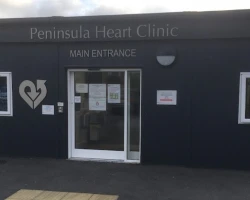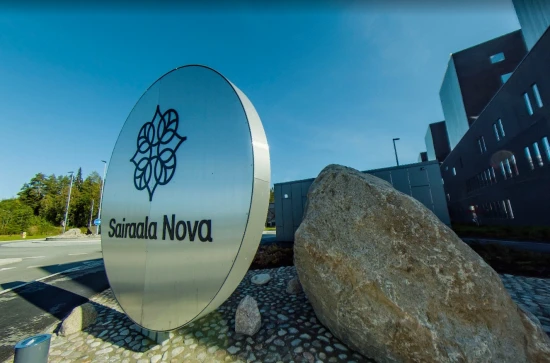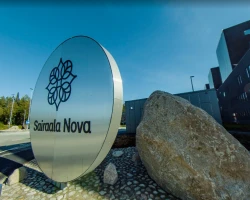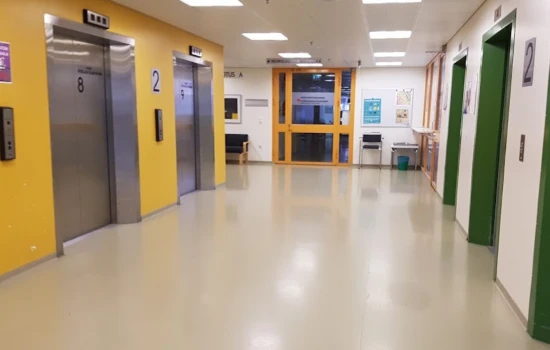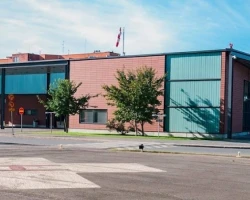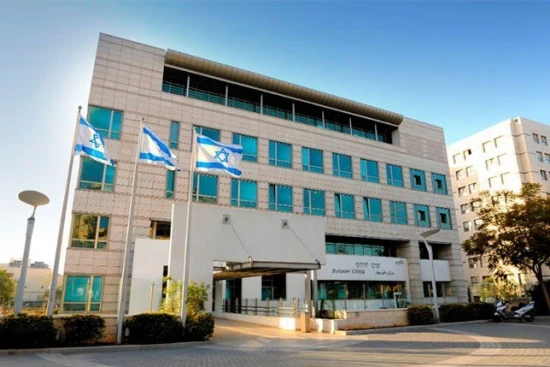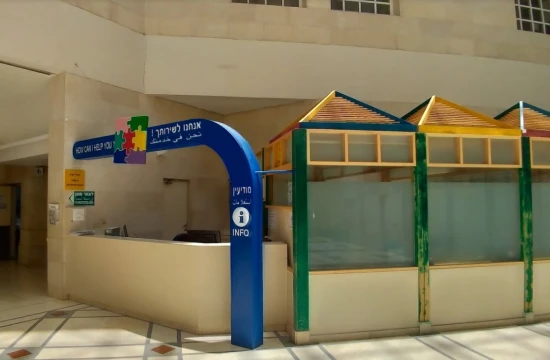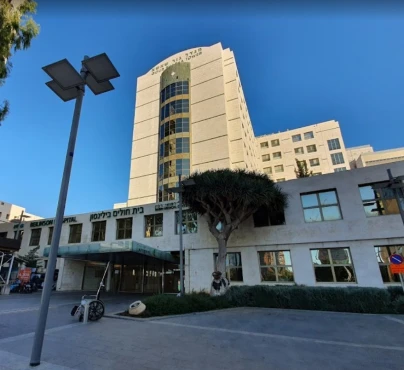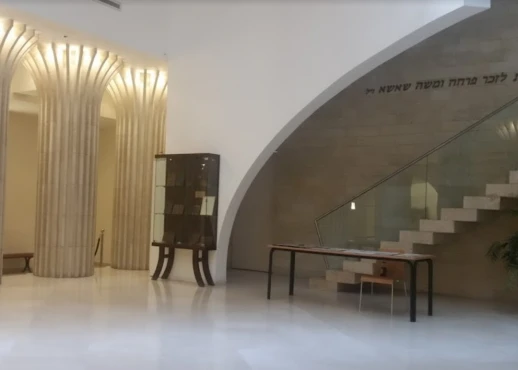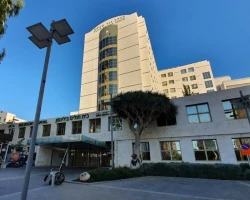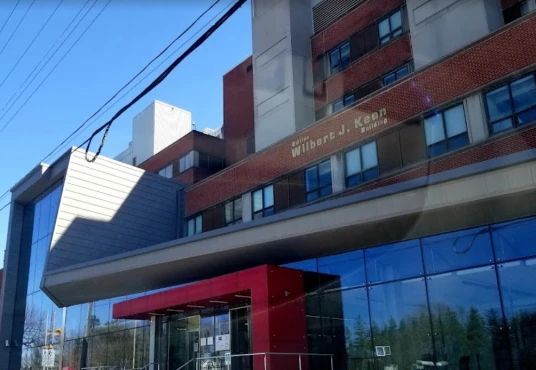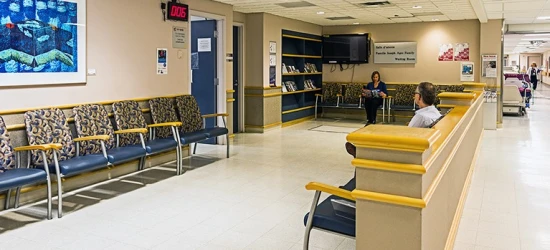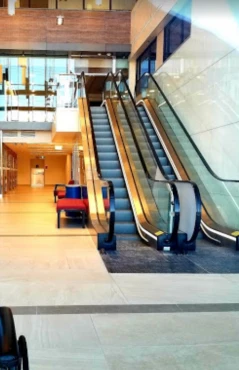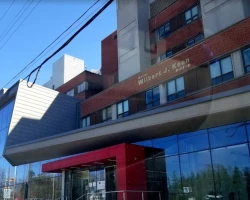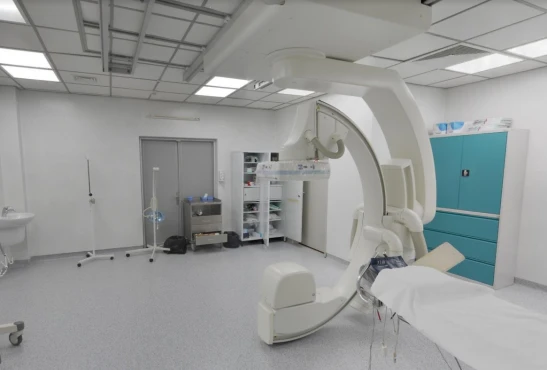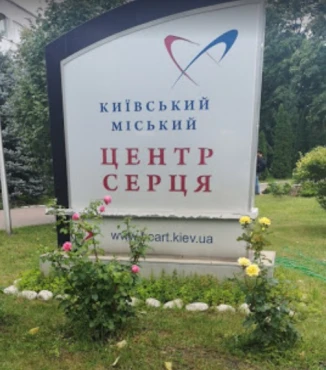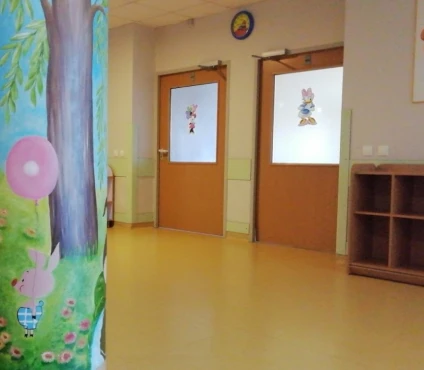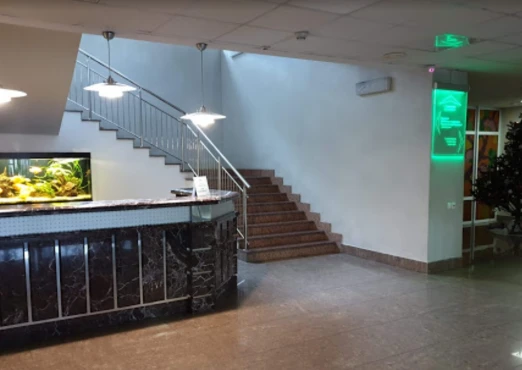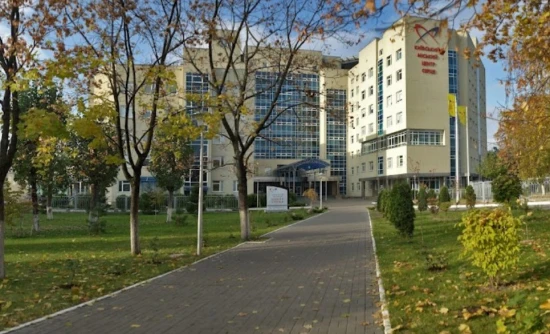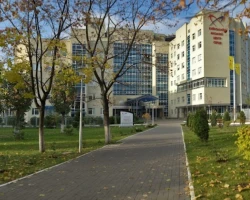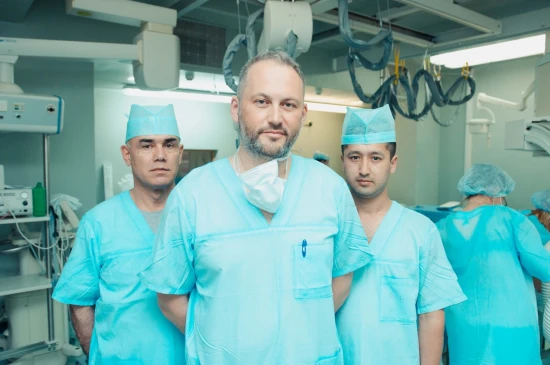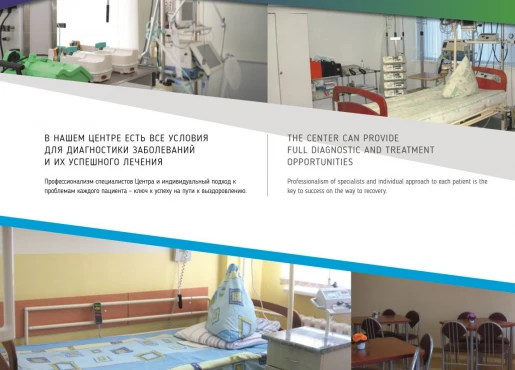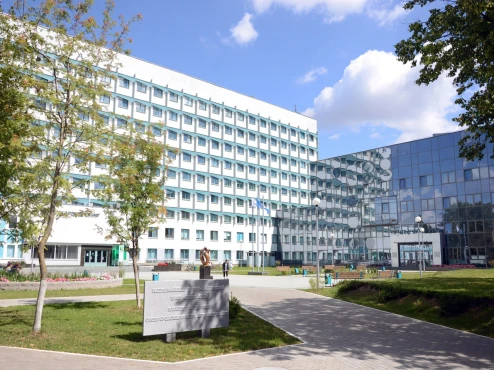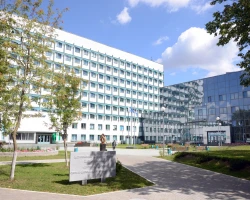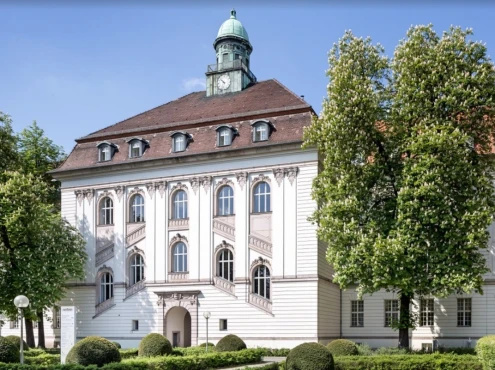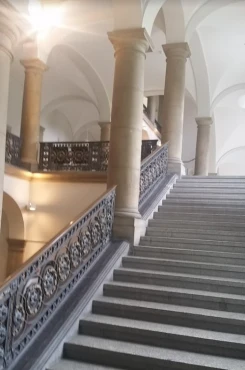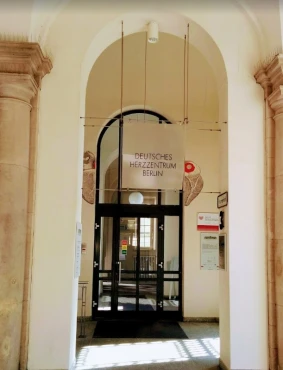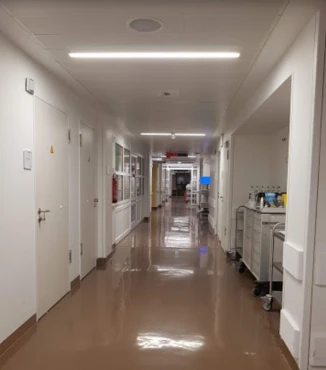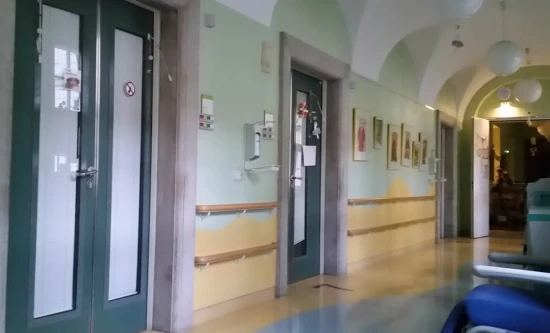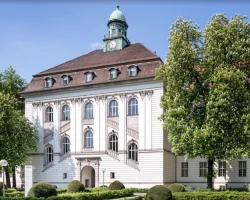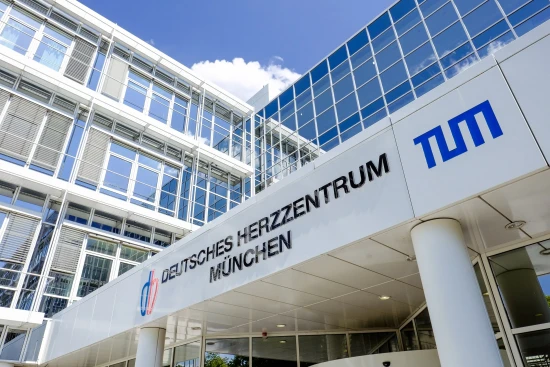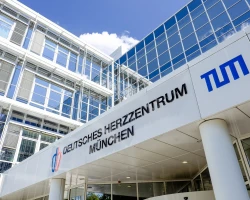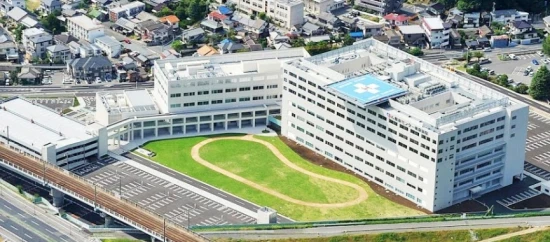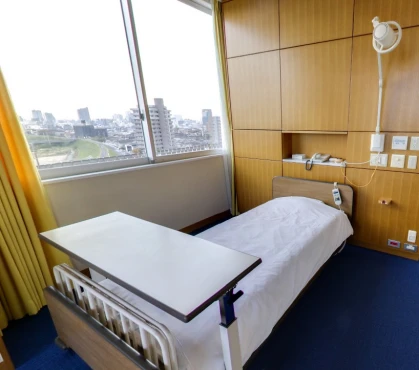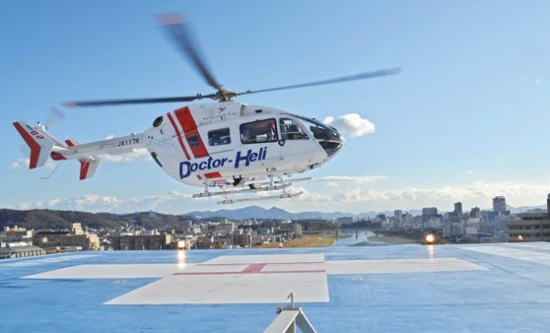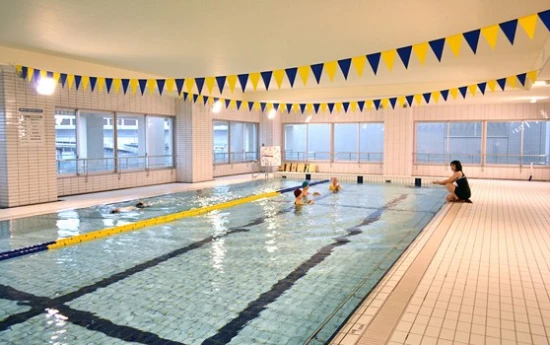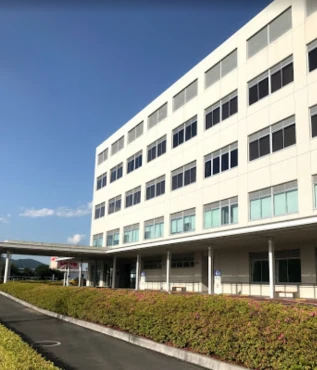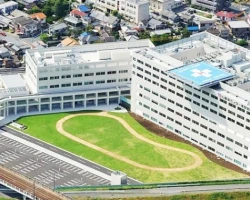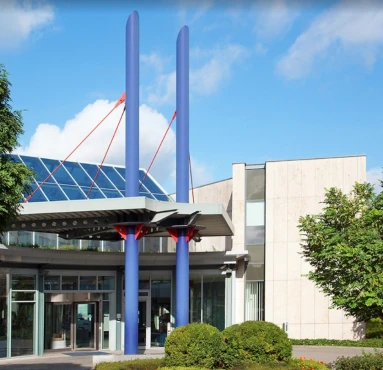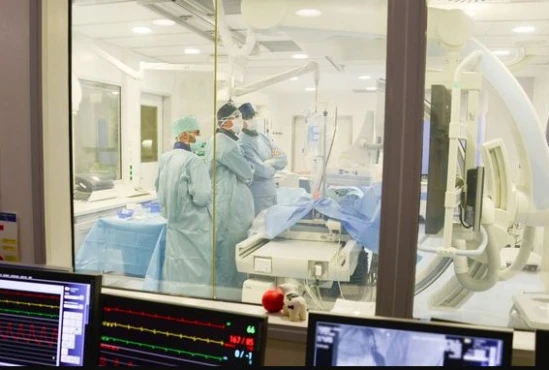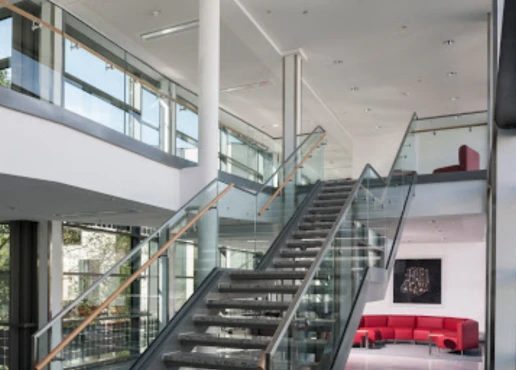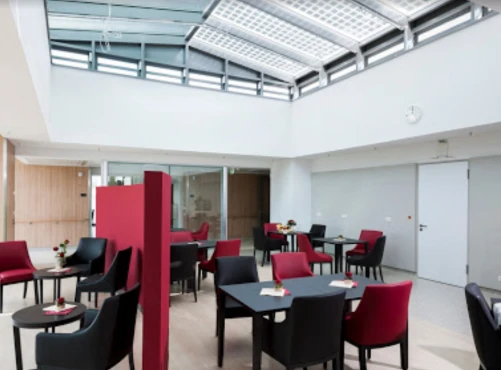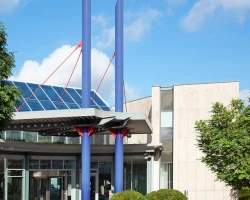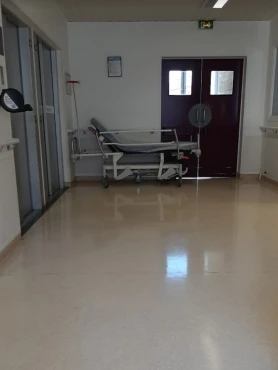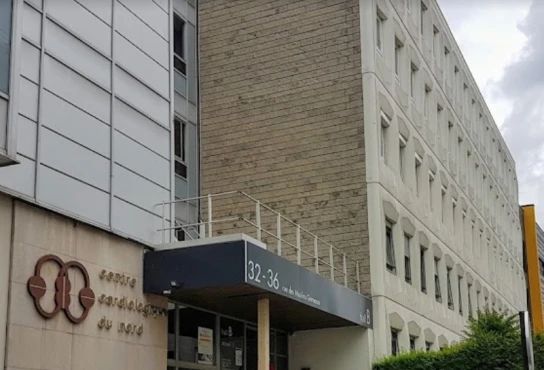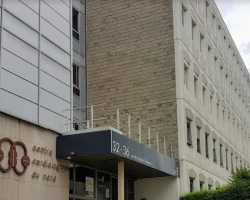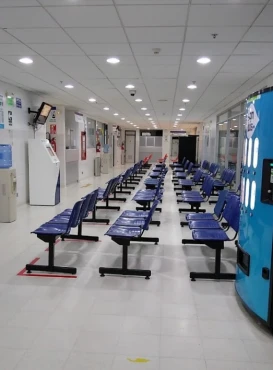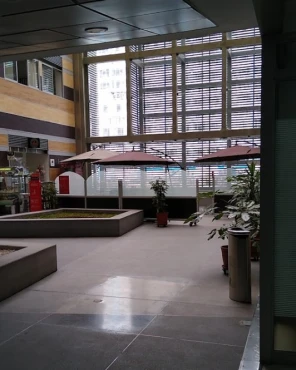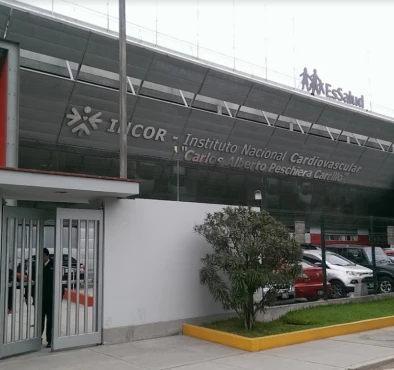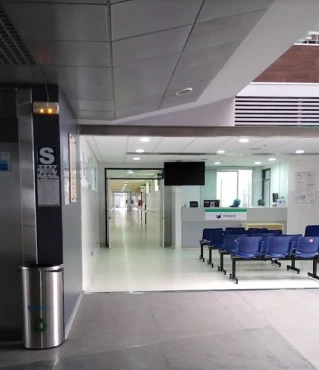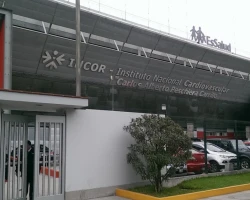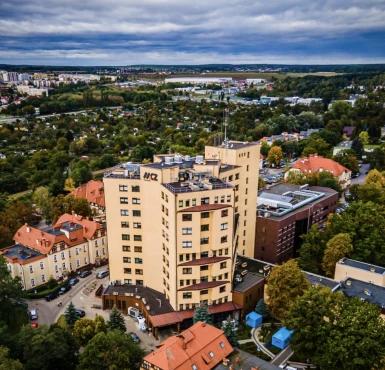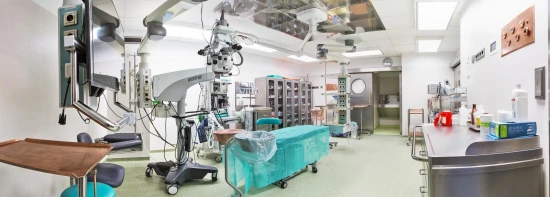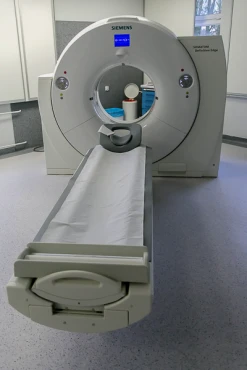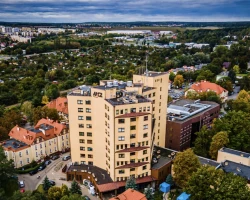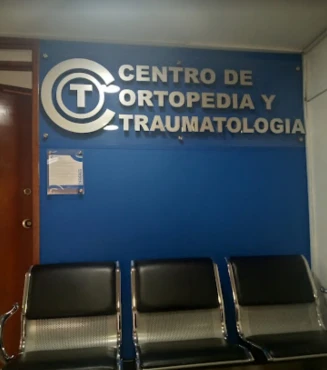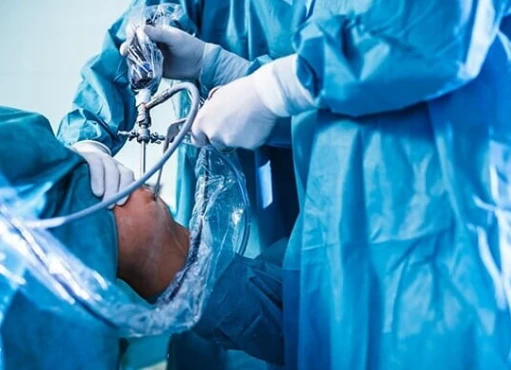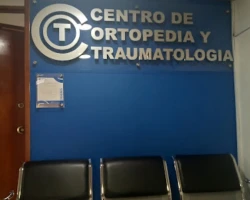Definition
Bundle branch block is an intracardiac conduction disorder characterized by slowing or complete cessation of conduction of excitation impulses along one or more branches of the His bundle. His bundle branch block may be detected only during instrumental examination or symptomatically manifested by rhythm disturbances, dizziness, and loss of consciousness. His bundle branch blockade is diagnosed with the help of electrocardiography. Treatment of His bundle branch block is limited to eliminating the causes of conduction disturbances; in some cases, it may be necessary to install an artificial pacemaker.
General information
His bundle branch block is an incomplete or complete disorder of the passage of electrical impulses through the bundles of cells of the cardiac conduction system, leading to a change in the sequence of excitation coverage of the ventricular myocardium. In cardiology, His bundle branch block is not considered an independent disease. As a rule, it is a consequence and, at the same time, an electrocardiographic symptom of any independent cardiac pathology. According to ECG data, His bundle branch block is diagnosed in 0.6% of people, more often in men; its frequency increases to 1-2% among people over 60.
The bundle of His is a part of the heart's conduction system represented by clusters of modified muscle fibers. In the interventricular septum, the bundle of His is divided into two branches - right and left. In turn, the left branch is divided into anterior and posterior branches, which descend on both sides of the interventricular septum. The smallest branches of the intraventricular conducting system are Purkinje fibers, which penetrate the entire cardiac muscle and are directly connected with the contractile myocardium of the ventricles. Myocardial contractions occur due to the propagation of electrical impulses originating in the sinus node, through the atria to the atrioventricular node, and then - along the bundle of His and its branches to the Purkinje fibers.
Causes of His bundle branch block
Blockade of the His bundle can be caused by various reasons. Right bundle branch block occurs in diseases accompanied by right ventricular overload and hypertrophy - mitral stenosis, atrial septal defect, tricuspid valve insufficiency, CHD, pulmonary heart disease, arterial hypertension, acute myocardial infarction and others.
Atherosclerotic cardiosclerosis, aortic valve defects, cardiomyopathy, myocardial infarction, myocarditis, bacterial endocarditis, and myocardial dystrophy lead to left bundle branch block. Less often, His bundle branch block develops against the background of pulmonary embolism, hyperkalemia, and intoxication with cardiac glycosides.
The causes of the double-branch block are usually aortic malformations (aortic insufficiency, aortic stenosis) and coarctation of the aorta.
Classification of His bundle branch blockade
Considering the anatomical structure of the bundle of His, blockades can be single-, double- and triple-branch. Single-branch blockades include lesions of only one branch of the His bundle: blockade of the right branch, blockade of the left anterior or left posterior branch. Two-branch blockades are simultaneous lesions of 2 branches of the His bundle: anterior and posterior branches of the left branch and right branch, and anterior left branch, right branch, and posterior left branch. In three-branch blockades, all three branches of the His bundle are affected.
The His bundle branch blockade may be incomplete and complete due to the degree of impulse conduction impairment. In incomplete blockade, impulse conduction along one of the branches of the bundle of His is impaired, while the functioning of the second branch or one of its branches is not impaired. In this case, excitation of the ventricular myocardium is provided by intact branches, but it is delayed.
Thus, if the impulse propagation process along the His bundle branches is slowed down, there is an incomplete heart block of the I degree. If not all impulses reach the ventricles, we speak about incomplete heart block of the II degree. Complete block (III-degree block) is characterized by the absolute impossibility of impulse conduction from atria to ventricles, in connection with which the latter begin to contract independently, at a rate of 20-40 beats per minute.
His bundle branch block can be transient (intermittent) or permanent (irreversible). In some cases, it develops only when the heart rate changes (bradycardia, tachycardia).
Characterization of different variants of His bundle branch blockade
His bundle branch block does not have independent clinical manifestations; in most cases, they are manifested by symptoms of the underlying disease and specific ECG changes. In some cases, with decreased cardiac output, His bundle branch block may be accompanied by frequent dizziness, marked bradycardia, and sometimes - attacks of loss of consciousness.
Let's describe the main clinical variants of the His bundle branch blockade.
Right bundle branch blockade
In case of complete blockade of the right His bundle branch, impulse conduction and excitation of the myocardium of the right ventricle and the right half of the interventricular septum occurs through contractile muscle fibers from the left ventricle and from the left half of the septum. With incomplete blockade, a slowing of the electrical impulse's conduction along the His bundle's right branch is noted. Sometimes, an incomplete right bundle branch block is detected in practically healthy young people; in this case, it is considered a variant of the physiological norm.
ECG signs of complete blockade of the right bundle branch are the widening of the S wave, increase in amplitude, and widening of the R-wave; QRS-complex has the form of qRS with dilation up to 0.12 sec. and more.
Left bundle branch block
In a complete left bundle branch blockade, the excitation wave does not travel along the trunk of the left bundle branch until it branches or does not spread simultaneously to both branches of the left bundle branch (double-branch blockade). The excitation wave is transmitted to the myocardium of the left ventricle with a delay from the right half of the interventricular septum and the right ventricle via Purkinje fibers. On ECG – electrical axis is deviated to the left, QRS complex is dilated up to 0.12 sec. or more.
Two-branch blockades
When the right bundle branch block is combined with the left anterior bundle branch block, the electrical impulse propagates along the posterior branch of the left bundle branch, causing excitation of the posterior inferior portions of the left ventricular myocardium first, followed by its anterolateral portions. After that, the impulse slowly spreads along contractile fibers to the right ventricular myocardium.
Delayed excitation of the anterolateral wall of the left ventricle and right ventricle is reflected on the ECG in the form of QRS-complex dilation up to 0.12 seconds, jagged ascending knee of the S-wave, negative T-wave, and electrical axis deviation to the left.
In combined right bundle branch block with left posterior bundle branch block, impulse conduction is carried out through the left anterior branch, anterolateral portions of the left ventricular myocardium through anastomoses to the posterior inferior portions of the left ventricle, and then through contractile fibers to the right ventricle. ECG reflects signs of left posterior branch and right bundle branch blockade and heart electrical axis deviation to the right. This combination indicates widespread and deep myocardial changes.
Three-branch blockade
An incomplete three-branch block is accompanied by propagation of the excitation impulse to the ventricles along the least affected branch of the His bundle branches. An atrioventricular block of I or II degree is noted in this case.
In a complete three-branch blockade, the conduction of impulses from the atria to the ventricles becomes impossible (AV blockade of the III degree), leading to the separation of atrial and ventricular rhythms. In this case, the ventricles contract in their idioventricular rhythm, characterized by low frequency and arrhythmicity, which can lead to atrial fibrillation and asystole of varying duration.
The ECG picture of the complete blockade of the branches of the His bundle corresponds to the signs of AV blockade to one degree or another.
Diagnosis and treatment of His bundle branch blockade
The main methods of detecting His bundle branch blockade are standard electrocardiography and its variants - transesophageal electrocardiography and daily ECG monitoring. Echocardiography, MRI, CT, and PET of the heart are performed to detect evidence of organic heart damage. In the case of His bundle branch blockade, the patient should be consulted by a cardiologist, arrhythmologist, or cardiac surgeon.
There is no specific therapy for His bundle branch block; the underlying disease should be treated in the first place. In the case of His bundle branch block complicated by angina pectoris, arterial hypertension, or heart failure, therapy with nitrates, cardiac glycosides, or hypotensive agents is performed. In AV blockades, indications for implantation of a pacemaker or device for resynchronizing therapy should be considered in the presence of reduced ejection fraction. Dynamic monitoring is performed in the case of the His bundle branch block without clinical manifestations.
Prognosis of His bundle branch blockade
The prognosis of His bundle branch blockade in asymptomatic patients is favorable. In the presence of organic heart pathology, the prognosis is determined by the underlying disease. In turn, the His bundle branch block increases both the risk of sudden death in this category of patients and the development of long-term complications.
Progression of conduction defect, development of AV blockade, cardiomegaly, hypertension, and heart failure increases the likelihood of an unfavorable outcome.
